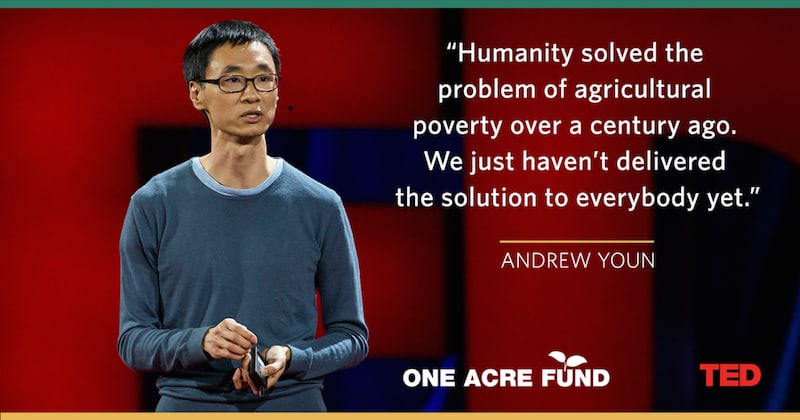Roundup: Jo Cox remembered, investors collaborate and Kenyan cabs
The world lost an extraordinary global health advocate and gained a great deal of disillusionment when Jo Cox died Thursday. She was a member of Parliament who campaigned for the rights of refugees and for Britain to remain in the European Union. Cox, 41, who was stabbed and shot after a meeting with her constituents in northern England, was also the former director of the Global Campaign on Maternal Mortality and worked with Save The Children and the National Society for the Prevention of Cruelty to Children. In an ever-more-confusing world, she will be missed.
Swimming Upstream
How can venture philanthropists and impact investors swim in the same sea, without consuming one another in the process? A new report from Toniic, Venture Philanthropists & Impact Investors, asks that question and answers it with several examples of how those two very different types of investors are blending efforts to fund early-stage enterprises. Toniic, an impact investing advocacy group with members across 26 countries, provides several case studies of investors and firms navigating these difficult waters. Unsurprisingly, most involve close collaboration, early on. What is surprising is how sometimes rigid roles can be made malleable for the benefit of scaling up companies and effectively harnessing capital.
Growing Hope
Sub-Saharan Africa is a very big place. But Andrew Yuon, CEO of One Acre Fund, does a great job shrinking it down to size in terms of the agricultural challenges that continue to keep millions in poverty. In a productively hopeful TED Talk, Youn draws on the ancient teachings of Archimedes, the Greek mathematician who put forth the principle of levers. Farmers too have leverage, and when they’re more productive they not only feed their communities and lower the rate of poverty, but decrease environmental land pressure.

LITTLECABS = BIG HEADACHE FOR UBER IN KENYA?
In a somewhat surprising move, Safaricom recently announced that it’s partnering with Nairobi-based software developer Craft Silicon to launch a ride-sharing app called Littlecabs in Kenya in the coming weeks. As part of the service, which its CEO says will be “cheaper and better” than Uber, Safaricom will reportedly put Wi-Fi in Littlecab vehicles – and naturally customers will be able to pay through M-Pesa. Uber has been operating in Kenya since early 2015, where (in a familiar story) it has sparked sometimes violent resistance from the local taxi business. Will Littlecab, as a local service, be more accepted? And what other interesting partnerships does Safaricom have up its sleeve, as it extends its platform into new industries?
Going to SOCAP? Apply for Scholarships by June 20
Attending #SOCAP16 in Sept? #socent can apply by 6/20 for scholarship to attend: https://t.co/yJ0yeyqAE1 #impinv pic.twitter.com/H1Rcw8qpbW
— Case at Duke (@CASEatDuke) June 15, 2016
Challenges (and Optimism) for Small and Growing Businesses
The middle children of businesses – and their outsized power in affecting poverty reduction – are getting more attention. The Economist earlier this month reported on the plight of small and medium-sized enterprises, particularly those in Africa who face the proverbial credit gap. And this week, the Aspen Network of Development Entrepreneurs (ANDE) released its annual State of the Sector Report on small and growing businesses. It identifies three key challenges for the sector: a lack of talented managers in emerging markets, a lag in very early-stage investing, and an ongoing decline in international development support for entrepreneurship. Even so, it says, there are reasons for optimism – among them the growth of women-owned enterprises and gender lens investing.
White House: Financial Inclusion on the Rise in the U.S.
In a week when the U.S. government had far graver issues on its plate, the White House released a promising report: Financial Inclusion in the United States. In some much-needed good news, it found that financial inclusion has risen across all demographics in the country, from 86 percent in 1989 to 93 percent in 2013. Even better: These gains have been especially large for those in the lowest income quintile, where inclusion rose from 56 percent to 79 percent, and for minority households, which saw increases from about 65 percent to 87 percent in that period.
PPP HC
“Africa, despite having the world’s largest disease burden, has the lowest ratio of health workers per population.” That’s what AllAfrica said in a story announcing that Africa’s expected to be short 6 million health care workers by 2030 – and why it’s especially good news that General Electric and Kenya’s Ministry of Health of Kenya on Thursday opened the $13 million GE Healthcare Skills and Training Institute. GE committed to training more than 10,000 health care workers from East Africa by 2020 as part of the public-private partnership aimed at creating a sustainable health care system.
A TOMS Evolution
TOMS pioneered the buy-one-give-one model, and a lot of people followed their lead. But they’ve also taken their share of criticism for disrupting local markets in developing countries. Three years ago, founder Blake Mycoskie vowed to do better, and it appears he’s followed up. In an interview this week, he said TOMS now makes 40 percent of its shoes in countries where they give them away – compared to 0 percent three years ago.
WHO Do You Trust?
If the Rio Olympics proceed as planned, with hundreds of thousands of athletes and fans descending on South America, will that help spread Zika around the world? Some say it will. Some, including the World Health Organization, say it won’t. That leaves many simply confused. Maybe all this shows – with apologies to the overburdened, underfunded WHO – that the world lacks a trusted, impartial, international arbiter of global health.
Photo by Garry Knight, via Flickr
- Categories
- Uncategorized



